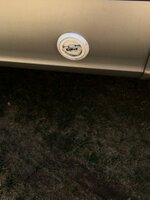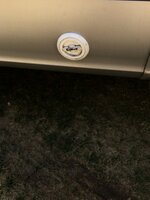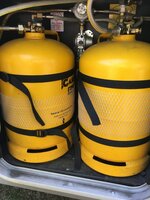Minxy
LIFE MEMBER
- Aug 22, 2007
- 33,631
- 70,118
- Funster No
- 149
- MH
- Carthago Compactline
- Exp
- Since 1996, had Elddis/Swift/Rapido/Rimor/Chausson MHs. Autocruise/Globecar PVCs/Compactline i-138
What type of batteries you can use will depend on what your camper charger can charge ... have a shuftie to find out the make/model of it and/or it has little switches for different battery types.Thank You All
Some really useful advice, all very much appreciated. I will purchase a couple of good quality batteries when we get back home (any recommendations on make model please) I'd rather pay a reasonable price once than a cheaper option twice. Expensive this Motorhome lark isn't it.
Having said that, we both wish we'd swapped from caravanning years ago rather than waiting until we retired.








